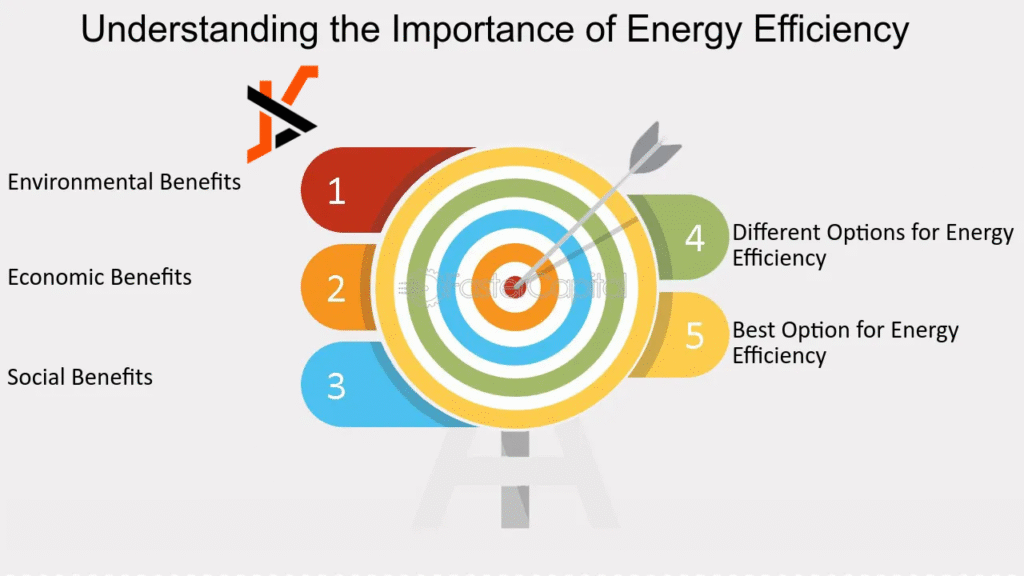Energy efficiency is no longer just a buzzword—it is a critical component of modern engineering. With rising energy costs, environmental concerns, and increasingly strict regulations, designing and operating systems that use energy efficiently is essential for both economic and ecological reasons. Among the technologies driving energy-efficient solutions in industrial and commercial applications are induction AC motors, which are widely recognized for their reliability, durability, and cost-effectiveness.
This article explores why energy efficiency matters in modern engineering, the role of induction AC motors, and how adopting energy-conscious practices benefits industries and society as a whole.
1. The Importance of Energy Efficiency
Energy efficiency in engineering refers to using less energy to perform the same work. It is important because:
- Reduces Operating Costs: Efficient systems consume less electricity, lowering utility bills.
- Minimizes Environmental Impact: Less energy consumption translates to reduced greenhouse gas emissions and smaller carbon footprints.
- Enhances System Longevity: Efficient designs often reduce mechanical stress on components, prolonging their lifespan.
- Supports Regulatory Compliance: Many governments impose standards and incentives to encourage energy-efficient solutions.
In industries such as manufacturing, HVAC, and transportation, energy-efficient equipment directly affects profitability, sustainability, and competitive advantage.
2. Introduction to Induction AC Motors
Induction AC motors are among the most commonly used motors in industrial, commercial, and household applications. They operate on alternating current (AC) and use electromagnetic induction to generate rotational motion.
Why Induction AC Motors are Popular
- Reliability: Fewer moving parts compared to other motor types reduce maintenance requirements.
- Durability: Can operate continuously under heavy loads without significant wear.
- Versatility: Suitable for pumps, conveyors, fans, compressors, and other machinery.
- Energy Efficiency: Modern designs and variable frequency drives (VFDs) allow for precise speed control and reduced energy consumption.
These characteristics make induction AC motors a cornerstone of energy-efficient engineering.
3. How Induction AC Motors Contribute to Energy Efficiency
The energy efficiency of induction AC motors is influenced by several factors:
a) Design Efficiency
High-quality motors are designed to minimize electrical losses in the rotor and stator. Improved materials, such as laminated steel cores and copper windings, reduce heat generation and energy waste.
b) Load Matching
Motors consume more energy when operating above or below their optimal load. Using properly sized induction AC motors ensures that they run efficiently under typical operating conditions.
c) Variable Frequency Drives (VFDs)
VFDs allow motors to operate at variable speeds, matching the motor output to the required load. This prevents energy wastage from running motors at full speed when not needed, improving overall system efficiency.
d) Maintenance Practices
Regular maintenance, such as lubrication, bearing checks, and insulation inspection, ensures that motors operate efficiently over time. Neglected motors consume more energy due to friction, heat, and electrical losses.
4. Applications Where Energy Efficiency is Critical
Energy-efficient induction AC motors are widely used in applications where energy savings have a significant impact:
- Industrial Manufacturing: Motors in conveyor belts, mixers, and compressors consume large amounts of energy. Efficient motors reduce operational costs dramatically.
- HVAC Systems: Fans, pumps, and compressors in heating, ventilation, and air conditioning systems benefit from energy-efficient motors and VFDs.
- Water and Wastewater Management: Pumps for municipal water supply or wastewater treatment can account for a substantial portion of facility energy consumption.
- Renewable Energy Systems: Induction AC motors drive generators or auxiliary equipment in wind and hydroelectric power plants.
In each of these applications, adopting energy-efficient motors translates to lower energy consumption, cost savings, and reduced environmental impact.
5. Economic and Environmental Benefits
The benefits of energy-efficient induction AC motors extend beyond technical performance:
Economic Benefits
- Reduced electricity bills and operational costs
- Longer equipment lifespan reduces replacement expenses
- Incentives and rebates from energy programs and governments
Environmental Benefits
- Lower greenhouse gas emissions
- Reduced dependency on fossil fuels
- Support for sustainable industrial practices and corporate social responsibility initiatives
Investing in energy-efficient motors is a win-win for both business and the planet.
6. Strategies to Maximize Motor Efficiency
To get the most out of induction AC motors:
- Select the Right Motor Size: Avoid oversizing, which leads to energy waste.
- Use VFDs Where Possible: Match motor speed to load requirements.
- Maintain Optimal Load Conditions: Operate motors near their rated load for peak efficiency.
- Regular Maintenance: Inspect bearings, windings, and cooling systems.
- Upgrade to Premium Efficiency Motors: Modern standards such as IE3 and IE4 efficiency classes offer substantial energy savings.
Implementing these strategies ensures that your engineering systems remain cost-effective, reliable, and environmentally responsible.
7. The Future of Energy-Efficient Engineering
With global energy demands rising, energy efficiency will remain a key focus in engineering. Technologies such as smart motor controls, advanced VFDs, and AI-driven energy management systems will complement induction AC motors to optimize performance and reduce waste. Engineers who adopt energy-conscious practices today will be better prepared to meet tomorrow’s sustainability challenges.
Conclusion
Energy efficiency is a critical aspect of modern engineering, providing economic, environmental, and operational benefits. Induction AC motors play a vital role in this landscape, offering reliable, durable, and versatile solutions for a wide range of applications. By selecting the right motors, maintaining them properly, and using advanced controls like variable frequency drives, engineers can significantly reduce energy consumption and costs while enhancing system performance.
In today’s industrial and commercial environment, focusing on energy-efficient solutions isn’t just a good practice—it’s a necessity. Efficient systems powered by induction AC motors represent the intersection of technology, sustainability, and economic sense, driving the future of modern engineering.

